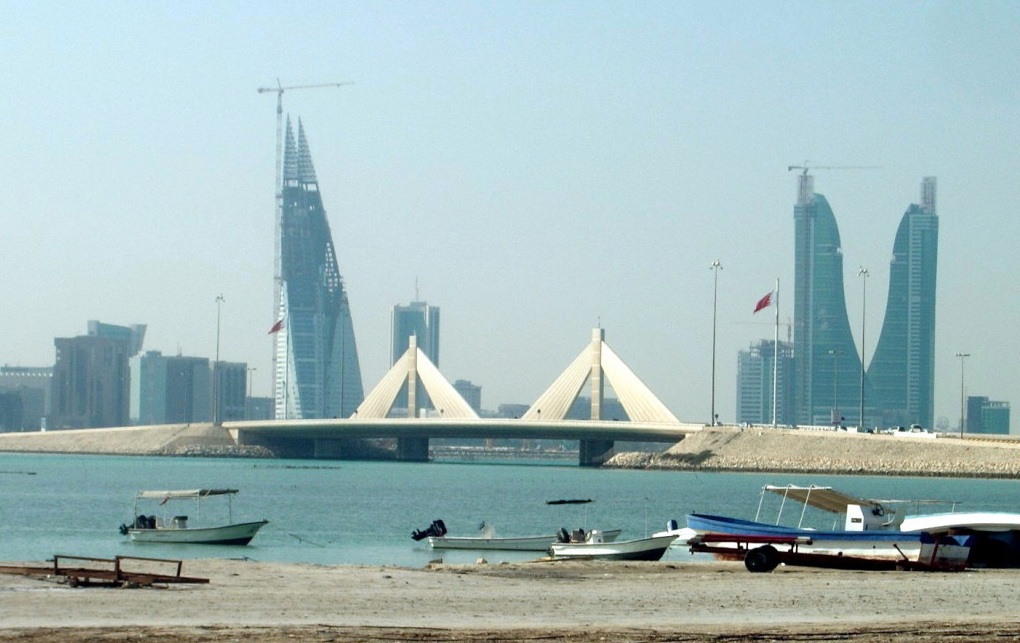The Coast Guard Command exerts all efforts and abilities to maintain maritime security and safety and impose maritime control in the territorial waters of Kingdom of Bahrain through spreading security patrols, marine checkpoints, coastal observation points, and following up through the radar system at the Maritime Observation Center.
Coast Guard always seeks to develop its abilities in all fields to be able to deal with all the challenges it may face.
Protecting Maritime Security and Safety:
Among the most important Coast Guard tasks is maintaining security and general order and pubic safety in the waters and coasts of the Kingdom of Bahrain by conducting maritime patrols and carrying out sea rescue and search operations, standing against smuggling and infiltration operations, protecting vital and industrial places and fishing areas and being ready to participate in facing disasters and maritime accidents with cooperation with the relevant authorities.
Protecting Marine Stocks:
Playing its role protecting marine life and The Kingdom food stocks, Coast Guard takes all the necessary procedures to protect marine environment; intensifying monitoring patrols and taking all the legal procedures regarding fishing offenders, especially, in the protected areas. Contacting fishermen to urge and educate them not to fish in those areas because the responsibility of those areas is the responsibility of all sea visitors, so maritime Operation Center must be informed of any violation based on the community partnership principle.
Marine and Land patrols play their role implementing prohibited fishing or trading or selling shrimp decision as the law states that:” Having nets, tools, machines or any other means of catching shrimp is prohibited on the boats in the specified shrimp catching areas, as well as boat areas if their existence purpose is catching shrimp during the banned period.” And the decision states that:” catching shrimp is prohibited in the territorial waters of the Kingdom of Bahrain from february1 to July 31 of each year.”
It is also prohibited to display or sell fresh, frozen and unprocessed shrimp in markets and public places for marketing or selling during the banned period in accordance with the decision terms.
Whoever violates those previsions is to be punished with the penalties mentioned in decree-law number 20 of 2002 regarding regulation, exploitation and protection of marine life which allows in articles 33 and 35 to confiscate the ship, or the used tools or the nets without giving the violator the right to request compensation. The responsible department may also suspend the violator license according to this provision for a period that does not exceed 6 months or to be permanently cancelled.
Protecting Maritime Environment:
Coast Guard Leadership always seeks coordination with Agriculture and Marine Life Agency and “the Ministry of Works, Municipalities affairs and Urban Planning “and The Supreme Environment Council to cooperate preserving the environment and Marine life; through holding periodic meetings and mutual exercises and solving the problems that face marine environment.
As coordination is made between the two sides to implement campaigns to arrest violators and prohibited fishing methods users and then taking legal procedures with them by referring them to the Public Prosecution and seizing their fishing quantities and tools used, while the fish is to be displayed in public auction and the fishing money is to be deposited in Public Prosecution treasury .
The taken procedures differ with regard to each report and due to its different types.
Awareness Campaigns:
Coast Guards Leadership through its Awareness and guidance campaigns works on educating citizens and residents who go to the sea and public coasts with the most important public safety requirements and the dangers they might encounter. In addition to holding awareness activities like Coast Guard Week because such activities aim to show Coast Guard tasks, and the Security services it provides to sea visitors. That is to activate the Community partnership principle that Ministry of Internal Affairs applies with various civil society institutions
Safety Procedures:
Coast Guard Leadership invites armature boat owners who are on their way for fishing or on a cruise to follow maritime safety procedures throughout sailing, take caution during weather fluctuations, and stay away from military areas and vital installations. Jet ski users should not enter swimming places and they also should also follow safety matters since Coast Guard Leadership aims to spread maritime safety requirements awareness. It also stresses the need to carry all official ship and crew papers, and it assures the importance to register at coastal observation points, coast guard points and maritime patrols.
One of the most important Coast Guard Leadership social responsibilities is to protect sea goers (armatures, professionals) from sea dangers and with the cooperation of community members following marine safety guidelines of the Coast Guard Leadership, so we can access a safe marine environment for all layers of society.
One must check the weather conditions before going into the sea, carry boat and crew papers, verify the general condition of the boat, ensure safety equipment presence like the fire extinguisher and first aid box. Adhere to get out of the sea from coast guard ports and inform family and friends about your destination and time of your return is very important. Make sure you know maritime boundaries of the area in which you sail. Do not stop in the navigation channels. Do not go to the sea without life jacket in case you do not know how to swim. Do not practice dangerous movements such as jumping over bridges or ships and make sure of navigational lights validity and stopping lights, too.
For assistance, you can call Coast Guard Operation Room 24/7 on 17700000 or call the emergency on 999.

